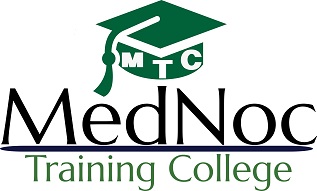If you’re reading this, perhaps you’ve come to the realization that you want to do something different with your career. Perhaps you’ve decided that you want to help people. Or more specifically, you want to work in the medical field. However, perhaps you don’t have a degree or time to obtain a four-year degree. You’re looking for the most efficient route to a change in your career path. Well, if you’re thinking about becoming a certified nursing assistant, home health aide or you’re looking to become certified in medical administration, then you’re going down the right path. In this article, I’m going to explain to you the differences between each of these certifications and the process through which you can obtain certification.
CNA
If you’re thinking about becoming a CNA, it’s important to understand what a CNA does. A certified nursing assistant is responsible for day-to-day patient care. CNA’s will often assist patients with personal tasks such as eating, bathing, breathing, going to the bathroom, standing up, sitting down, changing bed sheets and other intimate exercises. CNA’s may also be responsible for preparing paperwork for doctors or nurses or otherwise assisting with various duties as needed.
The process of becoming a certified nursing assistant is fairly quick. You can complete a 6-12-week program at most community colleges or medical facilities. You can enter the program without a four-year college degree. However, you will need a high school diploma or GED.
During the course you’ll likely learn basic nursing skills, anatomy and physiology, nutrition and infection control. At the end of the course you’ll likely have to complete a certification exam.
After completing a state-issued competency test, you’ll have to demonstrate your skills in a clinical setting as well. Once obtaining your license, you’ll have to keep up the training as most states require 48 hours of training every two years. Most employers will pay for that training.
If you want to transition from a CNA to a registered nurse, that is possible. Typically, it’s easier to transition if you have at least an associates degree; however, there are many bridge programs which can allow CNAs to transition to RNs without a bachelors or associates degree.
HHA
If you’re interested in becoming a home health aide, chances are you’re someone who cares deeply about people who are suffering from a severely diminished quality of life. The job description is similar to a CNA; however, HHAs tend to have even more intimate relationships with patients as HHAs spend most of their time in the patient’s home. HHAs may be responsible for cooking cleaning and laundry in addition to the duties described by a CNA.
Becoming an HHA typically only requires a high school diploma or GED. Depending on the state, however, an employer may require formal training or completion of a standardized test. Most employers will also want you to demonstrate competency during an on-the-job training period.
MAT
Completing medication administration training will often allow for career advancement opportunities. If you’re looking to become an RN or even a CNA, it is beneficial to obtain an MAT certification. Most states offer a 48-hour training that is necessary in order to become a trained medication aide. However, there are many online courses you can also take to add MAT to your resume.
Any of these trainings and certifications are easy to obtain and affordable. If you’re someone who’s looking for a positive change in career direction, then I highly recommend pursuing any of these programs. It’s people like you who save lives every day.




